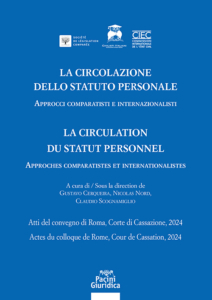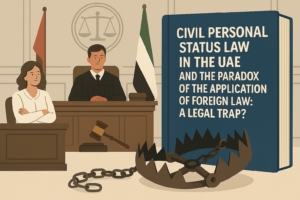New Book: La circolazione dello statuto personale / La circulation du statut personnel
 A new collective volume entitled “La circolazione dello statuto personale / La circulation du statut personnel” has recently been published by Pacini Giuridica. Edited by Gustavo Cerqueira (Nice), Nicolas Nord (Strasbourg) and Claudio Scognamiglio (Rome), the book brings together the proceedings of an international conference held on 19 January 2024 in Rome, in the prestigious Giallombardo Hall of the Italian Court of Cassation. Read more
A new collective volume entitled “La circolazione dello statuto personale / La circulation du statut personnel” has recently been published by Pacini Giuridica. Edited by Gustavo Cerqueira (Nice), Nicolas Nord (Strasbourg) and Claudio Scognamiglio (Rome), the book brings together the proceedings of an international conference held on 19 January 2024 in Rome, in the prestigious Giallombardo Hall of the Italian Court of Cassation. Read more


